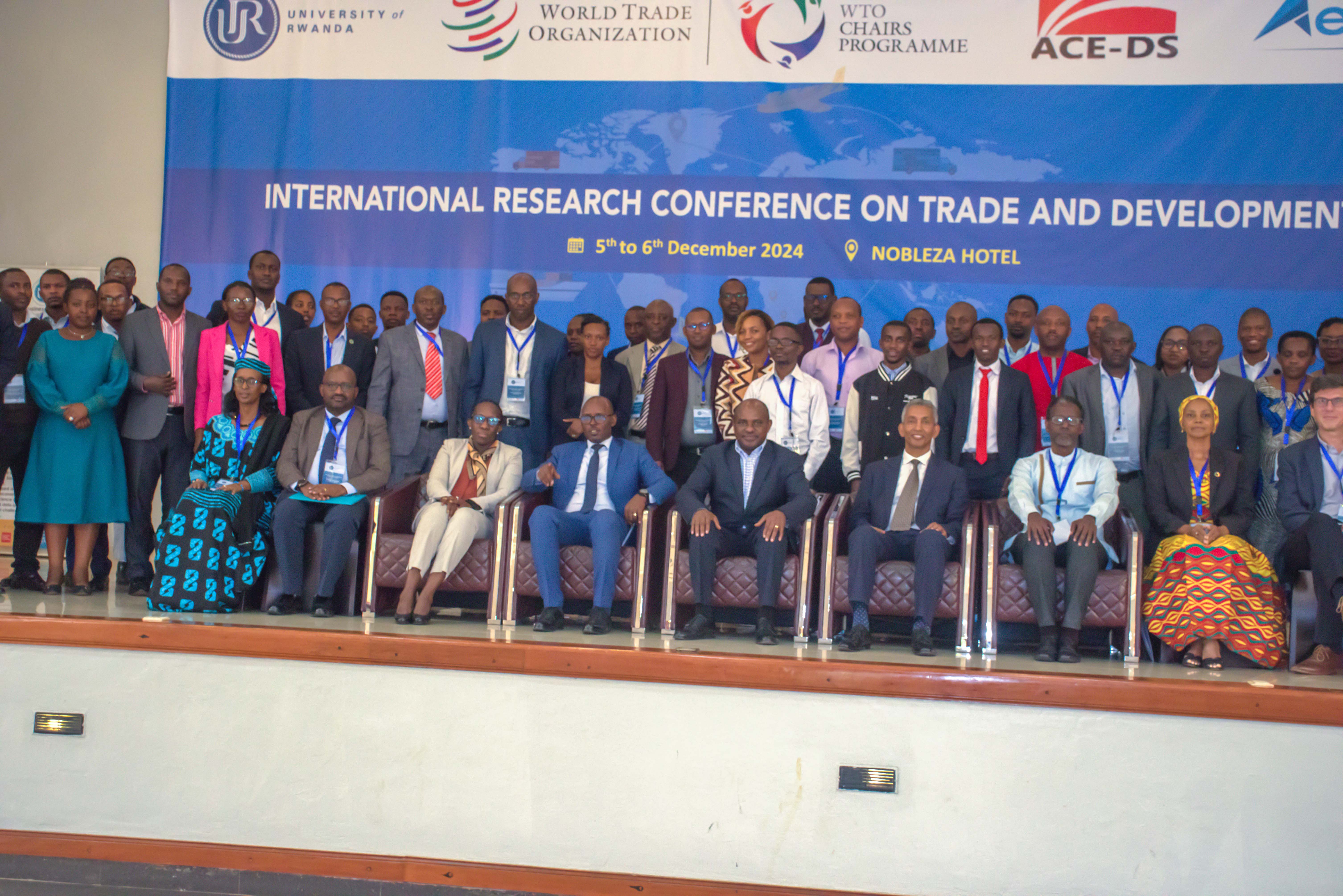Researchers Meet in Kigali to Discuss Trade-Related Research for regional Development
From December 5th to 6th, 2024, the University of Rwanda’s Centre of Excellence in Data Science (ACEDS) in partnership with World Trade Organization Chairs Programme (WCP)-Rwanda, hosted the International Research Conference on Trade and Development.The main objective of the conference was to provide a platform for presenting current research findings in the field of trade and development. It also served as a space for networking between academics, policymakers, industry practitioners, and other stakeholders, with the aim of fostering long-term knowledge sharing and discussions on highly relevant and current topics.In his remarks, the Vice Chancellor of the University of Rwanda, Prof. Kayihura Muganga Didas, emphasized the importance of conducting research on trade and development for least developed countries, particularly in Africa. He quoted the African Development Bank Group report (2021), which highlights that although Africa is rich in natural resources traded on international markets, the continent benefits less from global trade.
He noted that despite Africa’s wealth in key commodities traded globally, it has gained the least from international trade compared to its peers in other regions.“Africa hosts 30% of the world’s mineral reserves and accounts for more than 20% of global annual production of five key minerals—namely, 80% of platinum, 77% of cobalt, 51% of manganese, 46% of diamonds, 39% of chromium, and 22% of gold,” he stated.
He underscored the renewed interest in the role of trade, which is largely driven by the latest wave of globalization. This wave has not only fostered intensive trade integration and openness but is also closely associated with a technological revolution.
The CEO of AeTrade Group, a key partner in the trade industry, Mulualem Syoum, emphasized the growing importance of digital trade. He highlighted that in less than six years, by 2030, over 95% of global trade will be digital, making digital readiness crucial for Africa to compete and thrive.
“Digital trade removes barriers, enabling SMEs to access global markets, reduce costs, and enhance efficiency. It fosters job creation, empowers youth and women, and drives inclusive growth,” he stated.
He added, “Investing in digital infrastructure and capacity is essential to ensure Africa's participation in the global economy, avoid marginalization, and unlock vast opportunities for sustainable development. The future of trade is digital—Africa must act now to lead this transformation.”Mulualem Syoum also noted that AeTrade Group’s strategy focuses on collaboration with African universities and other key stakeholders to foster sustainable and competitive conditions across trade and related value chains.
During the conference, participants shared research findings with policymakers and private sector operators. They discussed ways to enhance evidence-based research, promote the exchange of ideas, and encourage innovative thinking among researchers, development practitioners, and policymakers.The discussions covered a wide range of topics, including regional trade and trade policy, international trade agreements and negotiations, Africa's benefits and challenges in regional and international trade, digital trade, the African Continental Free Trade Area (AfCFTA), international trade and trade financing, global value chains, and more.
- Log in to post comments





